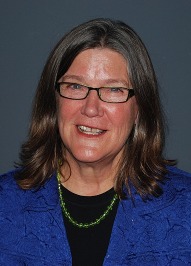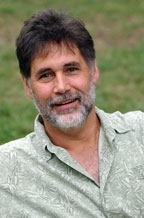
Poets Alison Hawthorne Deming and John Lane will lead a many-sided conversation on sustainability as applied to creative writing Thursday, Feb. 23, at Vanderbilt University’s Buttrick Hall.
The “Vanderbilt Creative Writing Spring Symposium: What We Talk About When We Talk About Sustainability & Creative Writing” is sponsored by the Gertrude and Harold S. Vanderbilt Visiting Writers’ Series, the Department of English and the College of Arts and Science.
“Our hope is that the afternoon seminar with Deming and Lane – along with a public reading Thursday evening – will create space within which to talk about the relationship between the ideas and practices of sustainability and creative writing,” said Kate Daniels, professor of English at Vanderbilt. “[rquote]Topics that might be addressed include creative writing as a sustainable vocation in the 21st century, nature in contemporary writing, community and writing, and place and voice in creative writing[/rquote].”
The 2 p.m. seminar in Buttrick 123 will emanate from a sample of writings by Deming and Lane. Materials may be requested in advance by emailing Margaret Quigley at Margaret.quigley@vanderiblt.edu. The public reading will begin at 7 p.m. in Buttrick 101.
Deming grew up in Connecticut and earned her master of fine arts degree from Vermont College in 1983. She is a professor in creative writing at the University of Arizona and recently completed the nonfiction book Zoologies: On Animals and the Human Spirit. Her other books include Science and Other Poems, The Edges of the Civilized World and Writing the Sacred Into the Real. She edited Poetry of the American West: A Columbia Anthology and co-edited The Colors of Nature: Essays on Culture, Identity and the Natural World.
Her numerous fellowships and awards include the National Endowment for the Arts, the Arizona Commission on the Arts, the Gertrude B. Claytor Award from the Poetry Society of America, a Pushcart Prize and the Bayer Award in Science Writing from Creative Nonfiction for the essay “Poetry and Science: A View from the Divide.”
She has served on the faculty of the Prague Summer Program, Taos Summer Writer’s Conference, and University of Montana’s Environmental Writing Institute, among other institutions. Deming, who is a descendant of writer Nathaniel Hawthorne, chairs the board of directors for Orion magazine. She lives in Tucson, Ariz., and Grand Manan, New Brunswick, Canada.
Lane is one of the founders of The Southern Nature Project, a group of environmental writers with Southern roots and allegiances. He is a native and resident of Spartanburg, S.C., where he teaches creative writing and environmental literature at Wofford College.
His book-length environmental narrative, A Strand of Cypress, was runner-up in the Associated Writing Programs creative nonfiction contest in 1995. Among his nonfiction books, Waist Deep in Black Water, The Woods Stretched for Miles and Chattooga, inspired by one of the only major freely flowing Southern Appalachian rivers and the setting for the novel and film Deliverance.

Lane’s poetry publications include As the World Around Us Sleeps, Against Information & Other Poems and Abandoned Quarry: New and Selected Poems. He is an avid hiker and kayaker and recently wrote Circling Home, which focuses on the area within a mile radius of the environmentally friendly house that Lane and his wife built after returning to Spartanburg.
Daniels noted that the symposium resulted from the yearlong interdisciplinary Sustainability Project that is housed within American Studies and a call for programming that engages the community on the issue of sustainability in multiple and creative ways. The unusual title for literary symposium riffs on a 1981 book of short stories What We Talk About When We Talk About Love by Raymond Carver.